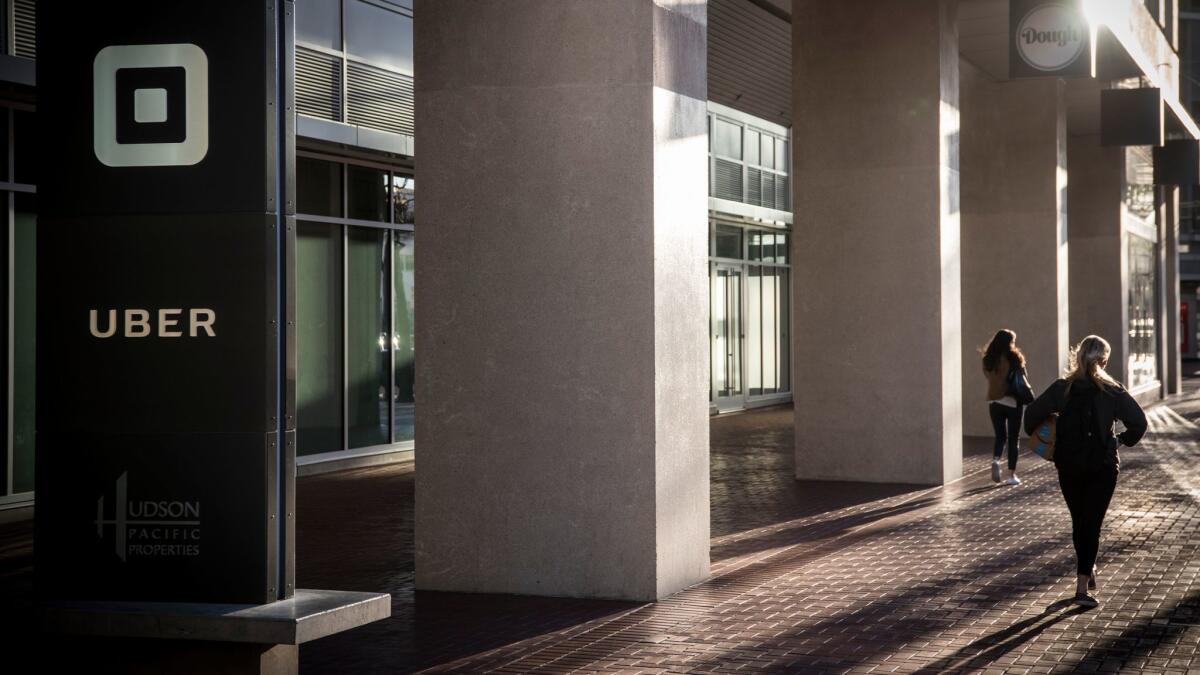A lesson from the Uber scandals: A toxic workplace is now a greater liability for companies

Corporate culture has long been the sort of squishy management consultant term that’s hard to define, even harder to change, and the recipient of lots of lip service yet little action by chief executives.
But its importance was stamped into stark relief after a former Uber engineer recently made allegations about its sexist, chaotic and aggressive culture — “a game-of-thrones political war,” she called it — at the San Francisco company in a deeply unsettling blog post about her experience there.
The viral essay spawned devastating follow-up stories by journalists about the company’s “Hobbesian environment” and its “human resources mess.” It revived a #DeleteUber social-media boycott of the ride-sharing app that cropped up following President Trump’s travel ban. On CNBC, one venture capitalist called the allegations “a huge deal” as the company moves toward an expected initial public stock offering.
More and more, stories depicting aggressive corporate cultures are both the source of fascination in a social-media-driven world and a potential reputation risk that goes well beyond what a company’s current employees and future recruits think of it.
Uber is the latest example. The fake accounts scandal at Wells Fargo laid bare a toxic sales environment fueled by high-pressure sales goals. A widely read story about Amazon’s hard-charging corporate culture in the New York Times in 2015 prompted pushback from the company months later.
A company’s culture has long been an underlying actor in any story about its successes, its struggles or its failures. (Enron, anyone?) But human resources and corporate reputation experts say that shifting expectations of consumers and employees, the role of social media and increasing interest from investors in corporate culture have driven the topic to the forefront, making exposure of a company’s “how we do things around here” approach more salient and precarious than ever.
“People and analysts, in particular, are starting to say how a company treats its employees needs to be factored into valuations of the company,” said Brian Kropp, the human resources practice leader of the consultancy CEB. “A lot of them are starting to look at this issue and say that’s going to have material impact on the company.”
Social media is a big driver. And growth of sites like Glassdoor give anyone with an Internet connection the chance to offer unvarnished reviews of what it’s like to work for a company as easily as they’d review a movie.
That makes it harder for companies to stay ahead of any negative impressions online. “You’ve got to respond quicker,” says Bob Sutton, a professor at Stanford University’s Graduate School of Business. “It’s higher risk and harder to control than it used to be.”
Expectations by employees and consumers, meanwhile, have also shifted.
Research has shown that consumers don’t need to experience bad treatment themselves to think twice about buying from a company. Christine Porath, a professor at Georgetown University’s McDonough School of Business, found in lab experiments that when customers witness uncivil behavior between two employees, “not only do they think badly of those employees, but they generalize really dramatically to the organization and the brand,” she said. Just 20% of participants in her study said they would do business with the firm again, she found.
Investors are also more focused on culture. Kropp said analysts he interviewed told him that companies that had a better grasp of how their employees were doing were more successful navigating the financial crisis, which spurred their interest in tracking the issue more closely.
He says that could be a factor for Uber, which is reported to have a valuation of nearly $70 billion and is expected to go public in 2018. “My guess is investors are taking a step back and saying those are real risks,” Kropp said.
Johndrow says corporate reputation is less likely to take a hit if consumers don’t feel the effects directly, as they did with the Wells Fargo scandal. The biggest reputation risk for Uber, he says, will be its ability to attract and retain the best employees in the fallout of the most recent news. But consumers may not be far behind. The repeated bad headlines, he says — from viral video of the CEO’s angry encounter with an Uber driver to what people misperceived as an effort to profit after Trump’s travel ban — means that for some consumers, “we’re nearing the 1,000th cut.”
McGregor writes a column analyzing leadership in the news for the Washington Post’s On Leadership section.
More to Read
Inside the business of entertainment
The Wide Shot brings you news, analysis and insights on everything from streaming wars to production — and what it all means for the future.
You may occasionally receive promotional content from the Los Angeles Times.










